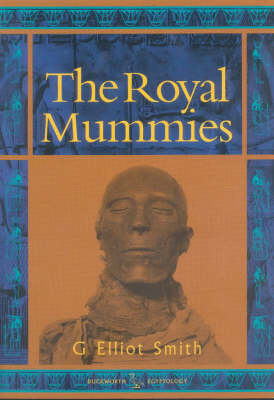Duckworth Egyptology
1 total work
Egypt is unique among ancient civilisations in that the physical remains of a good many of the country's ruling elite, thanks to mummification, have survived intact down to the present day. Originally buried in splendour in the Valley of the Kings and elsewhere, these mummies were later hidden for safekeeping in a number of easily guarded 'caches' dotted around the vast Theban necropolis. Two were discovered in 1881 (at Deir el-Bahri) and 1898 (in the tomb of Amenophis II), containing the bodies of more then 50 kings, queens, lesser royals and nobles who lived in the second half of the second millennium BC. "The Royal Mummies", first published in 1912 and long out of print, remains the basic text on the Egyptian royal dead. Heavily illustrated with photographs and line drawings, it includes extensive physical and archaeological descriptions of all the principal human remains from the two finds, including some of Egypt's most famous kings - Ahmose, Tuthmosis III, Amenophis III, Akhenaten, Sethos I and Ramesses II.
